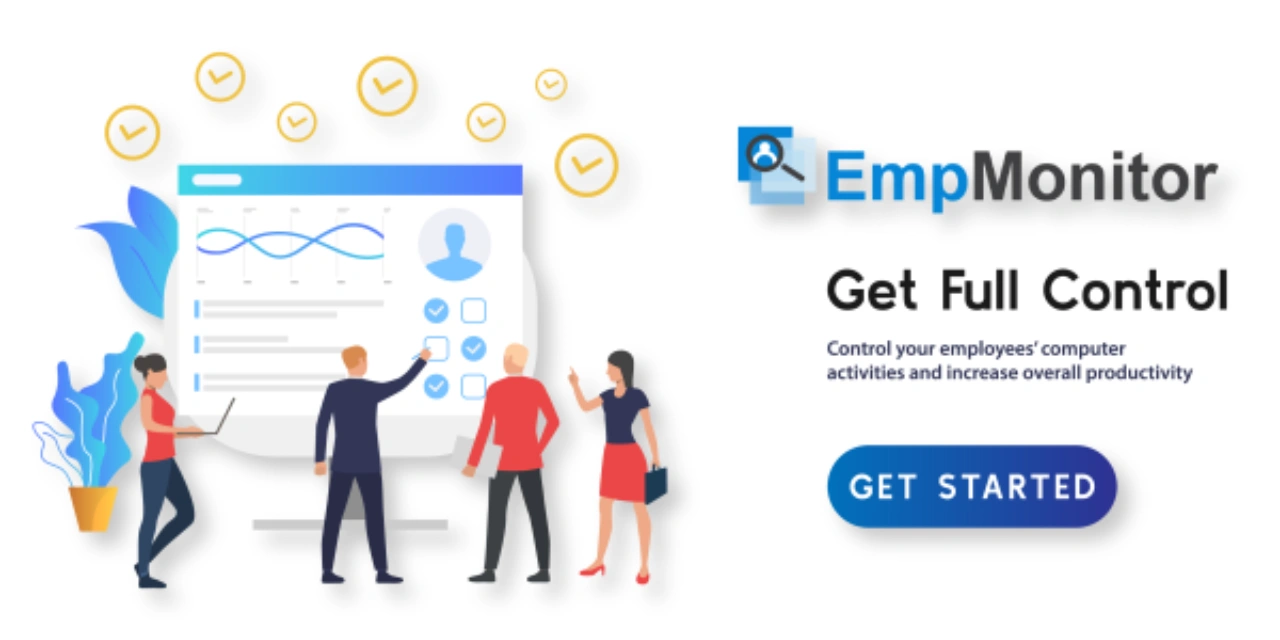Most organizations require employees to follow a fixed schedule, but there are instances where employees might be working off the clock voluntarily or unintentionally. But the question arises– Is working off the clock illegal?
In many countries, labor laws strictly prohibit off-the-clock work, meaning employees must be compensated for all the time they put in. If a company allows or fails to track unauthorized work hours, it can lead to legal penalties, wage disputes, and even lawsuits.
Unpaid work not only increases costs for employers but also affects employee well-being. That’s why many businesses have clear policies and overtime regulations in place to ensure compliance with labor laws.
Modern workforce management tools also help track work hours accurately, preventing issues related to off-the-clock work. By enforcing strict guidelines, organizations can protect themselves from legal risks while ensuring employees are fairly compensated for their time.
Let’s know more about– working off the clock.
Hit ‘Play’ Button & Tune Into The Blog!
What Is Working Off The Clock?
Working off the clock refers to any work employees do outside their scheduled hours without receiving compensation. This means the extra time they put in does not count toward overtime pay. Is Working Off The Clock Illegal or not this could be a big discussion in itself. In many places, labor laws clocking in and out time should match the exact working hours, but some employees still end up working unpaid hours.
For instance, imagine an employee whose shift schedule is from 10 a.m. to 6 p.m. However, they arrive at 9:30 a.m. to set up their workspace or stay until 7 p.m. to finish pending tasks—without logging those hours or getting paid. Another example is an employee responding to work emails or attending calls after hours without compensation. These extra tasks may seem minor, but over time, they add up, leading to wage violations.
To prevent such issues, many companies establish strict time-tracking policies and use automated tools to ensure employees are paid for every minute they work. Employers must be mindful of labor laws to avoid legal consequences and ensure fair wages for their workforce.
Most Common Types Of Off The Clock Work Activities
Off-the-clock work includes tasks employees perform outside of their scheduled hours without being paid. Here are some common examples:
1. Tasks Before Work Starts (Pre-Shift Work)
Some employees begin work before their official shift by setting up equipment, organizing materials, or checking emails. For instance, a restaurant worker may start prepping ingredients before the kitchen officially opens, or an office employee might log in early to complete unfinished work. If these extra efforts go unpaid, they fall under off-the-clock work.
2. Staying Late After Work (Post-Shift Work)
Employees may remain at work beyond their scheduled hours to complete assignments, clean up, or assist colleagues. A retail worker might stay behind to restock shelves, or an IT employee could troubleshoot an issue after logging out. If they are not compensated for this additional time, it qualifies as unpaid labor.
3. Unpaid Office Work (Administrative Tasks)
Many employees handle administrative duties outside their working hours, such as updating records, processing paperwork, or responding to emails. Even seemingly small tasks, like filling out reports after work, contribute to off-the-clock labor if they are not accounted for in payroll.
4. Redoing Tasks (Rework)
Mistakes happen, and employees often have to redo work due to errors, revisions, or new requests. If a designer has to revise a project after hours or a factory worker is asked to remake a defective product without extra pay, it becomes an off-the-clock task.
5. Waiting Between Assignments
Employees in fields like construction, freelancing, or customer support may spend time waiting for the next job, client, or project approval. If they are expected to be available but are not officially on the clock, this unpaid waiting time can count as off-the-clock work.
6. Working Through Breaks
Lunch and rest breaks are supposed to be unpaid time for employees to recharge. However, if a worker continues to handle emails, attend calls, or assist customers during their break, they are technically working without pay. Even if they choose to do so voluntarily, labor laws often require employers to compensate them for that time.
Now if you see– is working off the clock illegal? Well, in some countries it could be illegal while in some countries it is not. Also, in some countries bare minimum rest breaks are considered necessary. So it would be best to check your local labor laws before allowing your employees to work off the clock voluntarily.
Also Read
Shift Schedules: How To Create, Types, And Advantages
Why Do We Need Workforce Management Solutions To Grow?
Is Working Off The Clock Illegal In The USA?
Under the Fair Labor Standards Act (FLSA), is working off the clock illegal? Yes, in most cases, it is. The law states that any work performed outside scheduled hours must be counted as paid work time. Employers must ensure they track employees’ actual working hours, including any early start or post-shift work.
For non-exempt employees, the FLSA mandates payment for all hours worked, including off-the-clock tasks and overtime. The standard workweek is 40 hours, and any additional hours must be compensated at one and a half times the employee’s regular hourly rate. Employees must also receive at least the minimum wage for all worked hours.
However, exempt employees, such as certain salaried professionals, are not entitled to overtime pay. Employers who fail to compensate non-exempt employees for off-the-clock work can face legal penalties. To ensure compliance, businesses should implement strict time-tracking policies and prevent unpaid labor.
Working Off The Clock Laws for Employers
Employers must ensure that all work performed by non-exempt employees is properly recorded and compensated. Is working off the clock illegal as it may cause legal problems for employers? Yes, knowingly allowing unpaid work violates the Fair Labor Standards Act (FLSA) and can lead to legal consequences. To avoid this, employers should:
- Implement a clear work-time policy outlining when employees should start and stop working.
- Use automated time-tracking systems to ensure accurate recording of work hours.
- Educate managers and employees about labor laws and prohibit off-the-clock work.
- Encourage employees to report unpaid work and address issues promptly.
Following these measures helps employers comply with the law and avoid wage disputes.
Working Off The Clock Laws for Managers
Managers are responsible for enforcing company policies and ensuring employees do not work off the clock. Is working off the clock illegal and also cause legal problems for managers. Yes, and managers must take steps to prevent it by:
- Noting all extra work hours and ensuring employees are properly compensated.
- Strictly prohibiting unpaid work before or after shifts.
- Ensuring employees clock in before starting any work and clock out at the correct time.
- Communicating with HR if employees report performing unpaid tasks
By following these guidelines, managers help protect both employees and the company from legal risks.
Working Off The Clock Laws for Employees
Employees have the right to be paid for every hour they work. And thereby, employees should ensure that they are compensated fairly by:
- Following company policies regarding work hours and reporting any extra work.
- Not volunteering for unpaid work before or after their shift.
- Keeping records of their work hours in case of discrepancies.
- Reporting unpaid work to HR or their supervisor if required to work off the clock.
Understanding and asserting their rights ensures employees receive fair wages and prevents labor law violations.
The Impact of Technology on Off-The-Clock Work
With the rise of digital tools and remote work, employees often find themselves responding to emails, messages, or tasks outside their scheduled hours. This blurring of work-life boundaries raises concerns—especially regarding labor laws. While technology enhances productivity, it also makes it easier for employees to work beyond their shifts without proper compensation.
Many wonder whether these extra hours are considered legal under labor laws. In reality, working beyond scheduled hours without pay can violate labor regulations, and employers must ensure compliance. If non-exempt employees are completing tasks outside of their paid hours, they are still entitled to compensation. Businesses should implement clear policies and use tracking systems to prevent unauthorized work.
How Technology Helps Prevent Off-The-Clock Work?
Advancements in technology have made it easier for businesses to monitor and prevent off-the-clock work, ensuring compliance with labor laws. Many employers now use automated time-tracking systems, employee monitoring software, and scheduling tools to accurately record work hours and prevent unauthorized overtime.
One common question that arises is: Is working off the clock illegal if technology is used to track hours accurately? The answer remains yes—employers are still responsible for ensuring employees are paid for all worked hours. However, technology helps by sending automatic reminders for clocking in and out, restricting access to work systems outside of scheduled hours, and generating reports to identify unpaid labor. One of such tool is EmpMonitor, let’s explore more about it.
How EmpMonitor Helps Prevent Off The Clock Work?
For businesses to maintain compliance with labor laws, it is crucial to track employee work hours effectively. If an organization is concerned about compliance, is working off the clock illegal? Yes, and companies that fail to manage employee hours properly risk potential legal penalties. EmpMonitor offers a comprehensive workforce management solution that helps businesses track employee activities, monitor work hours, and prevent unauthorized work through its advanced features.
Key Features of EmpMonitor:
Time Tracking:
EmpMonitor provides automated time tracking that records when employees start and end their shifts, ensuring that all worked hours are documented. It prevents unapproved overtime by tracking real-time clock-ins and outs, ensuring employees do not exceed their shifts without prior approval.
Productivity Monitoring:
This feature analyzes employee activity levels, tracking software and website usage to measure productivity. Employers can identify whether employees are engaged in work-related tasks or spending time on non-work activities. It helps in assessing efficiency while ensuring unpaid overtime is not taking place outside scheduled hours.
Attendance Tracking:
EmpMonitor maintains detailed attendance records, ensuring that employees adhere to company policies. Employers and HR teams can view daily, weekly, and monthly attendance reports, preventing attendance manipulation or unauthorized extra hours.
Alert-Based System:
Employers can set custom alerts to detect off-the-clock work. If an employee logs in too early, stays beyond their shift, or exceeds the allowed work hours, managers receive instant alerts. This proactive approach helps organizations prevent unauthorized labor, avoiding compliance violations.
Location-Based Monitoring:
For remote and field employees, EmpMonitor offers real-time location tracking, ensuring that employees work from approved locations during designated hours. Employers can monitor employee movements and receive alerts if work is being conducted outside authorized locations.
Employee Records & Reports:
EmpMonitor generates detailed reports on work patterns, overtime, and productivity. These insights help employers identify potential compliance risks and take corrective action before issues arise. By maintaining accurate records, businesses can protect themselves from legal disputes related to work hours.
By integrating EmpMonitor’s advanced tracking and monitoring features, businesses can ensure employees comply with work-hour policies and avoid legal risks. Whenever the question arises– is working off the clock illegal or not, it is absolutely necessary for organizations to be proactive with better workforce management solutions like EmpMonior to prevent any legal threats.
Conclusion
Effectively managing employee work hours is not just a best practice—it is a legal obligation. Organizations that fail to monitor and regulate off-the-clock work risk compliance violations, wage disputes, and potential legal penalties.
Leveraging a workforce management solution like EmpMonitor ensures that work hours are accurately recorded, preventing unauthorized overtime and enforcing company policies.
To avoid problems when any employee is working off the clock illegally, businesses must implement strict time-tracking measures, clear policies, and proactive monitoring to mitigate risks. With features like automated attendance tracking, real-time alerts, and productivity monitoring, EmpMonitor helps organizations maintain compliance while fostering a fair and transparent work environment.
Frequently Asked Questions (FAQs)
Can an employer be held liable if an employee works off the clock voluntarily?
Yes, under labor laws, employers are responsible for ensuring that all hours worked are compensated, regardless of whether the employee worked voluntarily. Using EmpMonitor helps track work hours accurately, preventing unpaid overtime and legal risks.
How can companies prevent employees from working off the clock without permission?
Organizations can enforce strict time-tracking policies, utilize automated attendance monitoring, and implement alert-based mechanisms with EmpMonitor. These measures ensure that any unauthorized work is identified and addressed promptly.
What are the consequences of failing to track off-the-clock work?
Failure to track work hours properly can result in wage violations, lawsuits, regulatory penalties, and employee dissatisfaction. As you know the answer to the question- is working off the clock illegal, businesses must take preventive action by implementing reliable workforce management solutions.
How does EmpMonitor support compliance with labor laws?
EmpMonitor offers real-time time tracking, attendance monitoring, productivity analysis, and automated alerts to help employers maintain compliance. By ensuring that employees adhere to scheduled hours, the platform minimizes the risk of unauthorized work and potential legal disputes.














